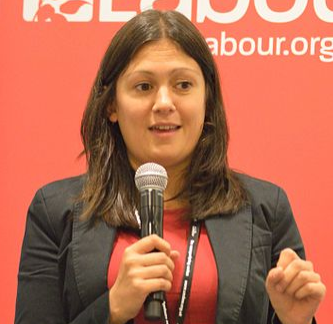Despite a heavy defeat at the General Election there was a strong feeling in the aftermath of a huge energy around the Labour Party. This was reflected by the thousands who quickly joined or rejoined after David Cameron went into coalition with Nick Clegg. There would be a new leader, new opportunity for politics, and it felt eminently possible that much could be achieved.
There was every chance that the damage done by the Right could be limited to one term, and it is perhaps an appreciation of this which contributed to the speed with which the Coalition government launched its attack on public services and public servants under the auspices of a crisis precipitated, lest we forget, by the greed of bankers. Meanwhile the Labour leadership election was a tough battle and threw up a surprise result. There were always going to be losers. What was important, no matter who you supported, was to move quickly forward and capitalise on that energy with purpose and firm direction.
Yet a year after Labour lost the election none of that feels even remotely true. The energy so evident a year ago has dissipated, literally been sucked out of the party, which is lacklustre, direction and idealess.
It has led to Labour MPs expressing despondency as the inadequacy of its recent election performance became apparent.
Labour is not only losing forward momentum, but the party appears to be going backwards.
The prime minister did much better at the polls and had more to celebrate than Labour. Add to this that he has grown in confidence with poll after poll saying that he is the only English party leader who looks and acts like a prime minister.
So how did this happen? How did a party full of energy 12-months ago transform itself seamlessly into a party that put in such a poor performance at the polls?
Judging by the advice being offered to Ed Miliband in recent weeks from the likes of Andrew Rawnsley in the Observer, former Blair advisor Phil Collins, the New Statesman and shadow cabinet members in Ivan Lewis among others it seems relatively clear.
Part of the problem is as some pundits see it, that Ed has committed himself to a narrow focus in trying to appeal to the centre ground and build a progressive majority. Ed likes to reach out. He is constantly appealing to the Liberal Democrats. Fair enough to a point. There is much disaffection within their ranks. However, as the AV vote showed the progressives are more a vanguard than a majority; more of an organising North London force than a platform on which to build a strategy for re-election.
Ed is rightly being told that he must broaden his appeal and that he has tapped this progressive vein for as much as it is worth for now. Labour needs to reach out and woo some of those voters back who once supported it in the South and Midlands, some of whom might be Lib Dem voters, but not necessarily a part of this mythical progressive majority, which is a label recognised by political strategists rather than the voting public.
Winning back and reconnecting with former voters makes a great deal of sense. No one is talking about recasting the party in the image of Tony Blair, but would it be mad to study his success in reaching out and connecting some voters in southern England?
That is reflected in the May’s English and Scottish elections. While Ed cannot take all the blame for Scotland he has to take some for the uninspiring result in England.
Others are dissatisfied over the long policy game that Ed is playing. Under his direction 20 plus policy reviews have been set up. There are thousands of submissions that are currently being sifted through in a great bureaucratic enterprise, but some argue that as we sift we drift, like some grand powerless ocean liner. Quite which direction we are heading in is anyone’s guess. The party and the pubic have no clue. Then there is the big question of the day. Why does Labour still not have a credible plan on the economy? This it seems, should be Ed’s number one priority, but we hear nothing. A silence too on acknowledging the need look at the economic record of the last Labour government.
Ed leaves many with no idea what he or the party stand for and that is being reflected in poll after poll. They show the public have little faith in a leader whose efforts to score points against Cameron fall flat. Obscure jibes comparing Cameron to George MacDonald Fraser’s fictional character and bounder Flashman won’t cut it. They don’t just fall flat, but as Tony Parsons points out, calling someone Flashman is a compliment. Ed Miliband is so far off base he does not appear to be in the same game. The evidence for this is plentiful.
His rating the latest Mirror/Independent ComRes survey gives him a poll rating among voters only 1% higher than Nick Clegg. Only 22% see, the brother who is apparently racked by guilt, as a good leader of the Labour Party. His approval rating even before the lacklustre performance in the elections was only 24%.
An earlier YouGov poll similar places Clegg and Ed Miliband on an equal footing with the public seeing both as out of their depth. Clegg at least had his brief moment in the sun shining in the TV debates, surging across social networks, and landing himself the job of deputy prime minister.
How is it possible for Ed Miliband to be seen as no more attractive to voters than Clegg? This is a man who is publicly reviled and carries with him a wheelbarrow full of broken promises.
Another ComRes poll, this time for ITV, asked people if they trusted certain politicians to “see the country through the current economic situation” and the results are not pretty. David Cameron scored 38% and George Osborne 25%. Not as the FT points out “an amazing score”, but Ed Miliband scored only 17%.
It brings us to the elephant in the room. In all the advice that has come Ed’s way in recent weeks no one addressed this. No one has come out and said what many are thinking and some are now talking about. There are concerns of disloyalty and giving ammunition to the enemy, but we cannot be hostages to our fears. The elephant is this, that Ed Miliband has no chance of ever being prime minister or leading Labour to victory.
It isn’t, as it has been put that he sounds he sounds like a “robot with flu”, it isn’t that no one is really sure what he stands for or why he wanted to be leader, it isn’t that a man who showed ruthless sibling rivalry is toothless when it comes to politics; it isn’t even the lacklustre English election result or his failure to articulate a credible Labour alternative on the economy; and it isn’t that after eight months as leader of the Labour Party his ratings are in the toilet.
It isn’t any one thing. It is many. If Labour were a business and Ed our turn-around CEO he would have been sacked for failing to provide leadership to an organisation in need of it. Not just in need of it, but wanting it. He’s certainly lucky he’s not a Premiership manager.
Ed can announce new policies once his army of reviews are complete, and the red tape is suitably unravelled, and he can get one over on Cameron at PMQs, but none of that will change the basic impression that he is simply not Prime ministerial material and that he is failing.
A year has been wasted and with no sign that the Coalition will crumble any time soon while we stand ready to waste four more behind a man who has no hope of winning yet appears to be impregnably in place, as if we must lose the next election and condemn the ordinary people of this country to not four but nine more years of widening inequalities due to a surfeit of what? Bad manners?


